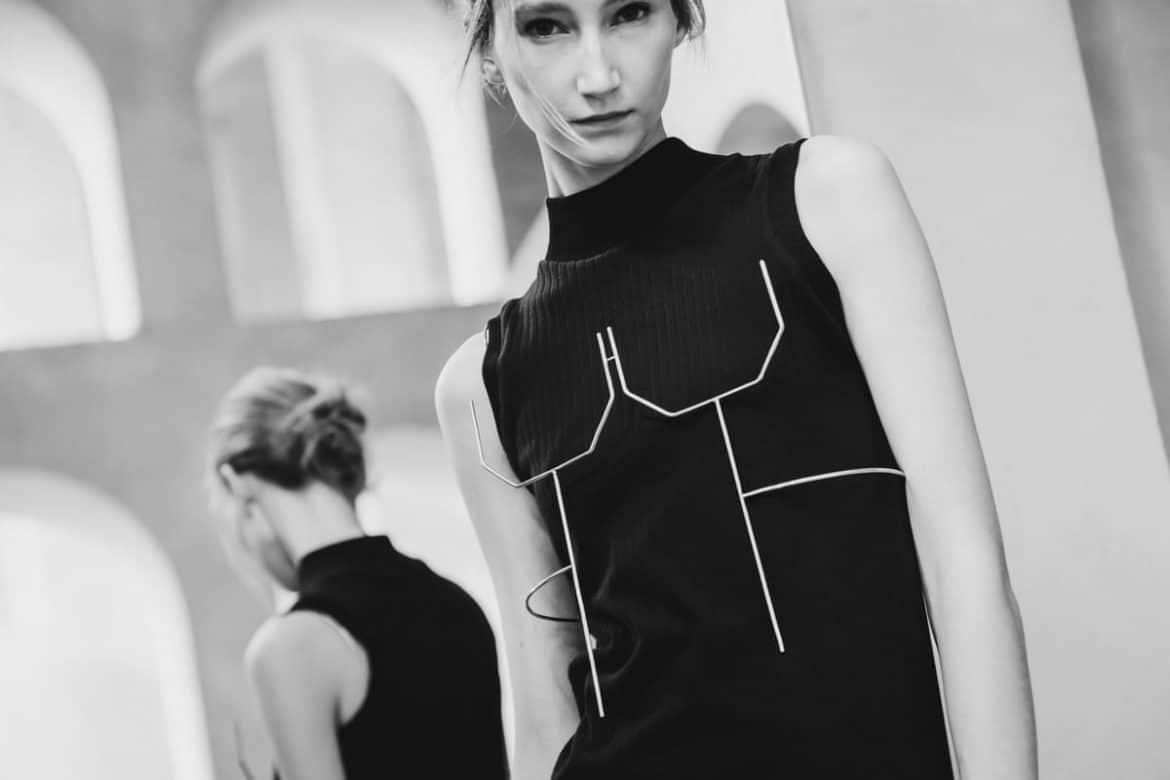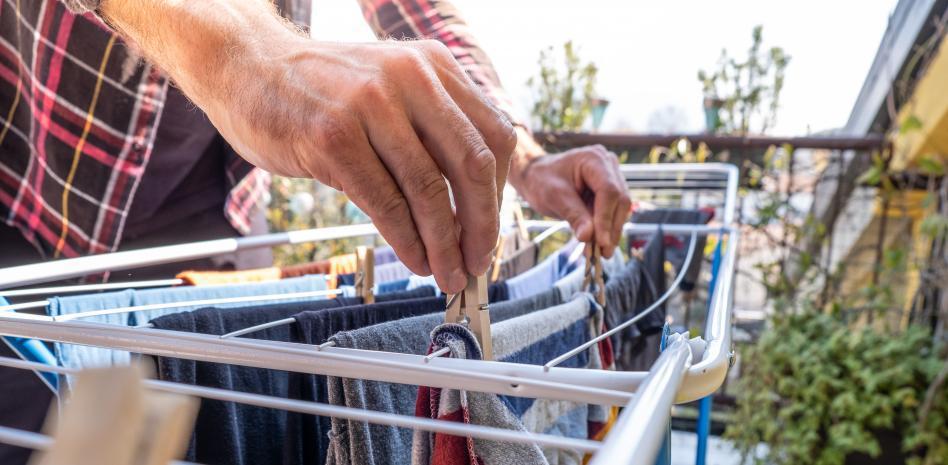Paloma Wool, LR3 and Eñaut: the new Catalan fashion that questions fashion
Although constant change is in the DNA of fashion, we cannot always speak of profound movements that rethink everything from production to consumption. When the industry went from haute couture to prêt-à-porter, a real revolution took place in all areas, and the same thing happened when the first fashion chains emerged, which managed to democratize design while opening the door to problems of fast fashion sustainability.
In recent years we have seen how vintage has gone from being an experiment to one more way of buying clothes, digital stores have made their way, Greta Thunberg has stirred consciences and a global pandemic has made us critically review what we have in store. the closets. In this context, new fashion firms have appeared that question the criteria followed by the greats of fashion. They want to be at peace with the Planet, they avoid generating stocks by producing excessively, they communicate with their followers through networks because they are digital natives, they design pieces that they are passionate about, sometimes timeless, and they look for sustainable materials. Some don't even make gender-differentiated clothing.
Are we facing a paradigm shift with a future? This week, when 080 Barcelona Fashion has broadcast the fashion show films of the 22 brands based in the city that are participating in its 28th edition —they were filmed in the beautiful sculpture-house of Xavier Corberó, in Esplugues de Llobregat—, we chose three of these firms that operate under these criteria —with their variations and particularities— to understand the keys to this new look at dressing: LR3, Paloma Wool and Eñaut.
LR3, THE SLOW FASHION CLOTHING PROPOSAL WITHOUT GENDER
The designer Louis Rubí, born in Extremadura and living in Barcelona for 15 years, worked for years in the corporate world of the big fashion chains until he decided to change his life by creating his own brand. He did it at the end of 2019, just before the pandemic began, together with his sentimental partner Daniel Corrales, who handles the management.
His proposal is totally slow fashion, with quality fabrics, timeless garments and totally genderless. "At the beginning we thought about what the basic basics of the wardrobe were —shirt, pants, coat…— and we did that. Over time we made them with new fabrics and colors, we also added other pieces, but the ones we had didn't disappear", explains Rubí, who this year has added pleated skirts to the collection.
It is striking that at LR3 they make their garments in a single size and without gender, but they assure that this does not pose any problem for the client. "They are very studied patterns, before making them we have tested them on many people with different proportions", explains the designer and adds that there are special cases in which they make custom pieces. For example, for a client who was two meters tall and weighed 130 kilos, it was necessary to make him a coat that was much longer than usual so that it would have the drape that the piece required.
The clothing of this brand, which is made in a workshop in L'Hospitalet de Llobregat where eight people work, is not conventional and is especially popular in developed markets, with knowledge of fashion, such as Japan and the United States. When we talk to Louis, he has just sold a client, a nuclear physicist from Los Angeles, a three-piece suit with a jacket, vest and hakama pants (the one worn by samurai).
They make on demand, so they do not have stocks or losses. “Despite having been born almost when the pandemic began, we are not doing badly. We prefer to go little by little with a firm step”. They take care of the fabrics and the quality of their product, which is identified with an orange line on the back. They sell online although they are thinking of opening pop-up stores in the cities where they buy them the most so that their followers can touch their clothes and try them on, "we want them to feel how it moves, how it spins with you when you put it on."
Louis notes that his genderless clothing reaches younger people without any problem, "who have not been educated in blue for boys and pink for girls." A generation that is proven to move in vintage stores with the same ease as if they were in a Zara.
PALOMA WOOL: THE SIGNATURE OF CELEBRITIES WITH A CONSCIENCE
In just seven years, Paloma Wool has managed to become one of the firms that sensibly seduce celebrities, such as Kendall Jenner, Bella Hadid, Sophia Turner or Cindy Crawford's daughter, Kaia Gerber, a true reference for the Zeta Generation. Its founder, Paloma Lanna, lived from a young age immersed in the textile world as the daughter of the creators of the fashion company Nice Things, Miquel Lanna and Paloma Santaolalla. She studied business management at Esade on the advice of her parents — “they were self-taught and suffered a lot with financial management,” she explains — and she started working in the family company in 2012 when her father passed away.

She learned the inner workings, immersed herself in design and marketing, and just two years later, she had brought her own project to life. She did it together with her collaborator in the company Carlota Guerrero and the graphic artist Tana Latorre. From the first moment she was clear that her signature —which she called Paloma Wool playing with her last name Lanna— would shape her world, where fashion, sustainability, art and new technologies have a place. Everyone on her team is digital native, although they also like to get closer to their customers by setting up pop-ups in selected stores.
For Lanna, her project is not so much a brand as "an online creative platform where people come together around the act of getting dressed." Instagram is a natural habitat — “Tik Tok has caught us too old,” she says —, and it is also essential for them to collaborate with artists and create a community that speaks the same language.
In the Fashion show film that they have just presented at 080, opening the event, they show pieces from their Eternal Loop collection, with fractal prints and knitting as the protagonist, under the mantra: “Everything is connected, the chain has never been broken”. The silhouettes are inspired by the volumes of the female body and the color palette “recalls the colors of the earth and space”, say the brand, which supports local and sustainable production. In this edition Paloma Wool has collaborated with the Dutch artist Fenna Schilling, an expert in the collage technique, who has printed some of the pieces.
At Paloma Wool they understand production as a trickle of garments, without much stock. They prefer to fine-tune production and eliminate rebates or discounts. They do not plan to manufacture in Eastern countries or make two large collections a year like conventional brands.
They have more impact in New York than in Barcelona, although the celebrities who have worn their designs — for men, women and also unisex — have never done so out of commitment. Rosalía, for example, chose speckled cycling shorts with a top in 2019, and in March of this year, a loving ecru jersey with a Matisse-inspired face for a photo sitting in her studio, which she posted on Instagram. And Kendall Jenner was photographed in an orange print top, and her sales skyrocketed.
EÑAUT, SUSTAINABLE URBAN FASHION FOR MEN, AND NOW ALSO FOR WOMEN
Eñaut Barruetabeña, from Gipuzkoa, studied architecture —like other illustrious designers such as Jesús del Pozo (interior architecture) and Josep Font— and this is reflected in the volumes of his minimalist and urban clothing, with an ethical and sustainable philosophy. Graduated in 2017 in fashion design at the IED, in 2018 he won the REC.0 / 080 contest for the best collection and a year later the emerging design contest on the Barcelona catwalk.
His clothes are designed for today's men, although in the latest collection —the fifth, the one filmed in Xavier Corberó's house— pieces for women also appear. "I've started to make women, there are only four looks", explains the creator who opted for men's fashion because he liked to try on everything he did and it fit better in men's clothing than in women's.
Eñaut's designs —who gave the brand his own name— are very careful. He pampers the pattern, the detail and also the fabrics, which are always organic. The designer, born in Mutriku in 1993, is interested in connecting with nature and denouncing the exploitation that human beings make “of a place as beautiful as the Earth”. If in his penultimate fashion film he focused on deforestation, now he does it in the impressive beauty of the flysch, those rock formations of hard and soft sediment that run along the coast of the Basque Country where he lived his childhood. A landscape promoted in the world by Game of Thrones and declared a Global Geopark by UNESCO, "where fossils and information on the extinction of the dinosaurs have been found," he explains. "I want to claim the beauty of nature, what it is capable of creating," he says, and translates that interest into pieces for the coming summer made with natural, recycled organic fabrics, tricots, vegan leather, fabric from pineapple cultivation …
The creator is delighted to show it in a place like the Espai XC, with an architecture very close to his tastes, in a fashion show film that on this occasion gives the parade a little more prominence, "so that the details of the clothing".
Eñaut, who assures that during the confinement he sold a lot, offers his production online and in two points of sale in Barcelona and the Basque Country, although lately he finds that they buy more from Germany, France and Italy. He makes his most coveted garments on demand, although he has a small stock of basic and accessible pieces without gender (t-shirts, sweatshirts...). The main problem that he finds working with a slow food system is the rush of young people to have their orders at the moment. "If I have to make them I can take two weeks to have a pair of pants, or three days for a coat."
The designer, who worked at Inditex before starting his own project, finds it difficult to compete against the speed and price of the chains, although his commitment will always be sustainable. "I know that I work in one of the most polluting industries on the planet, so I try to ensure that everything I do has the least possible impact."








